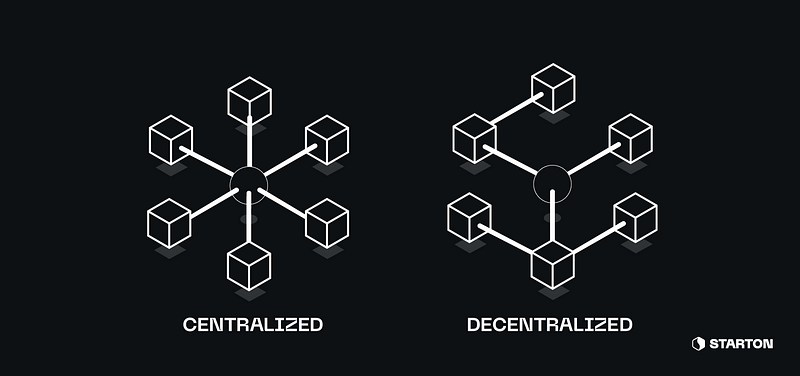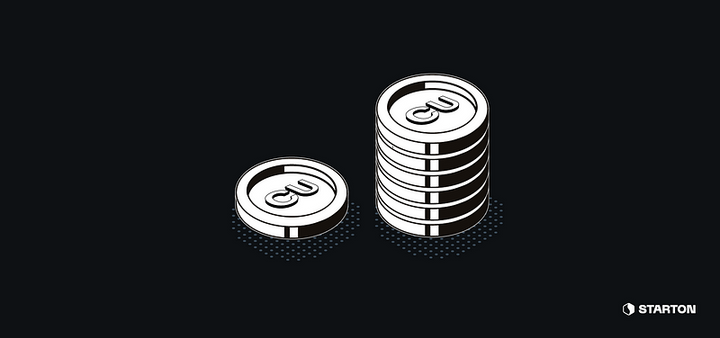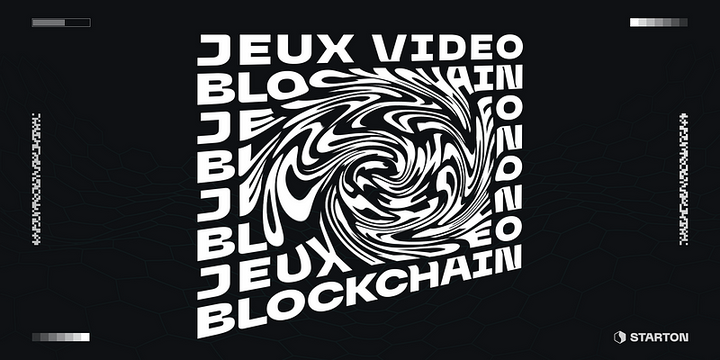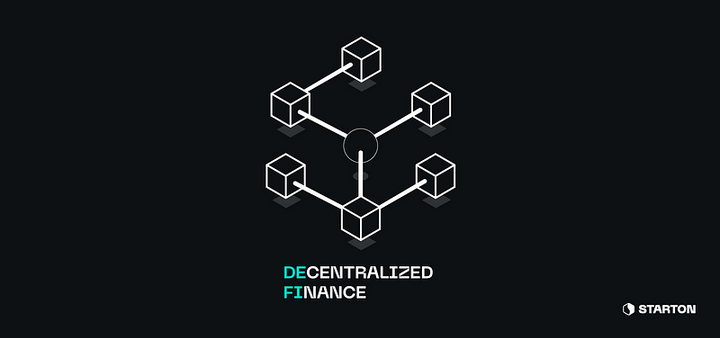Blockchain: a real game changer
The technology that is changing the world

The technology that is changing the world
Web2 put the focus on ease of use and increased interactivity. Now we need to prepare for the rise of Web3, which is all about decentralizing the Internet. At the heart of this paradigm shift lies blockchain. This technology, which is playing a key role in shaking up traditional governance modes, remains little known among the general public. It is however central to many of the challenges we face.
We explain how it is preparing to change the world we live in, slowly but surely.
Still today, our information systems all operate on the basis of a centralized system. This means that a single entity runs them, be it Facebook, Twitter, or YouTube. The various websites we consult on a daily basis are controlled by a central authority that holds all powers. One of the consequences of this is that users share their data without knowing what they are being used for. Who knows, for example, how the personal data of Google users (representing the vast majority of Internet users) are used?
This lack of transparency and security has led to various scandals, one of the most far-reaching of which was the Cambridge Analytica affair. In 2014, this data analysis company began using the personal data of millions of Facebook users, going as far as to influence the voting intentions of key voters in the 2016 United States presidential election. This may be an extreme case, but who knows exactly what happens to our personal data?
Each day, we leave a large digital footprint on the Internet, from our email addresses to the opinions we share with other users and our bank details. The security issues at play are huge.
Centralization makes information systems particularly vulnerable. It is no coincidence that there has been a massive increase in cyberattacks in recent years: once a weakness is exploited, the entire network is threatened. A memorable case was the hacking of the American website Yahoo in August 2013, which affected more than one billion (!) user accounts.
The emergence of decentralization: a revolution in transparency and security
By moving away from centralized systems, which are vulnerable and high-risk, decentralization (or the absence of central authority) offers a real change of paradigm. Blockchain, which can be seen as a powerful network that creates an indelible record of information (like a freely accessible register), and enables new programs known as “smart contracts” to be deployed, operates in a decentralized manner. In other words, all users approve each transaction and hold a copy of the network, to guarantee the permanence of data. No central authority controls blockchain, which is paving the way for a digital revolution and a transition to a more open and censorship-free Internet.
Decentralisation also gives users control over the use of their data and the management of their digital identity. With this new model, the aim is to put users back at the center of information systems, so that they are no longer simply spectators and can play an active role in the use of their digital footprints.
With blockchain, information can circulate freely, with no mediation by a central control authority. This open, shared network brings transparency and equity, and its applications today involve various industries, from insurance to video games, food processing, real estate, health, and finance. With this in mind, the use of blockchain should rapidly develop to secure electronic payments. Decentralized finance (or DeFi), which is natively digital and involves the provision of blockchain-based financial services, makes it possible to cut out intermediaries such as banks, as transactions are made directly from user to user.
Whatever industry it is used in, blockchain can now play the role of a trusted third party. Its applications are developing fast, signaling the beginning of a revolution in many industries. Issues related to a lack of transparency and data security could soon be nothing but a bad memory, as a new, more open, democratic, secure, and efficient Internet approaches.
There is no doubt about it: the blockchain revolution is just getting warmed up.




